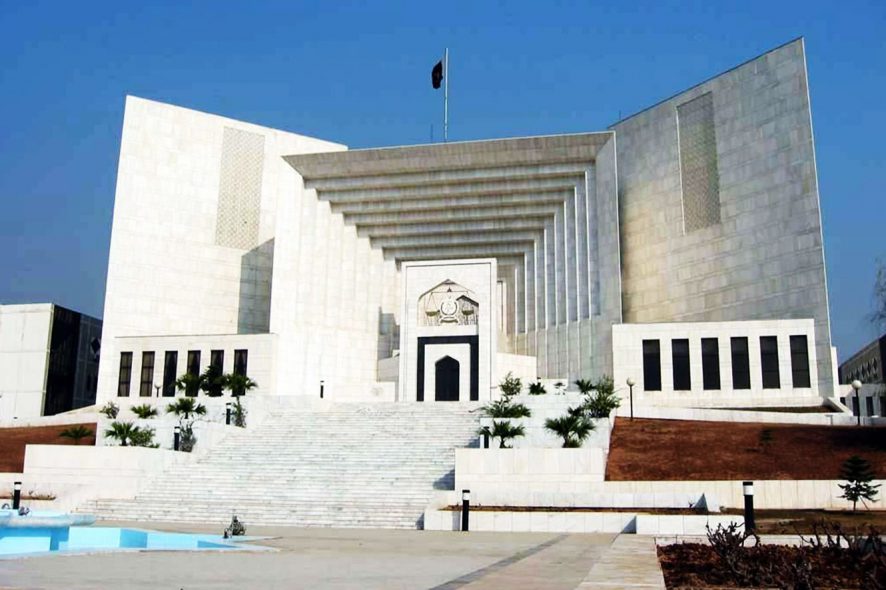Supreme Court of Pakistan: A Three-Judge Bench comprising of Mian Saqib Nisar, Asif Saeed Khan Khosa and Mazhar Alam Khan Miankhel, JJ. while hearing an appeal against conviction on charges of blasphemy, ruled in favour of the accused holding that the prosecution could not prove its case beyond reasonable doubt.
This matter has its genesis in a criminal case filed by one Qari Muhammad Salaam against the appellant – a Christian – who allegedly uttered derogatory remarks against Prophet Muhammad while plucking berries with around 25 other Muslim ladies. In a public meeting, appellant confessed her guilt and an FIR was registered against her. The trial court convicted the appellant under Section 295-C of the Pakistan Penal Code, 1860 and sentenced her to death. Her death sentence was confirmed by the High Court. The instant appeal was filed challenging the order of conviction.
The appellant contended that she had been wrongly implicated owing to a heated altercation between her and the complainant. Further, her confession was coerced in front of a gathering that threatened to kill her.
The Supreme Court appreciated the facts and evidence on record and noted the following:
- The entire prosecution case revolved around an allegation of two Muslim ladies who did not even appear before the court to support the prosecution case. It was strange that none of the other Muslim co-workers heard appellant’s purported blasphemous statements.
- There was an inordinate delay of five days in lodging the FIR which casted a serious doubt about the probity of witnesses. As per the law laid down in Zeeshan @ Shani v State, 2012 SCMR 428, absence of any plausible explanation regarding delay in lodging of FIR is fatal to prosecution story and extends benefit of doubt to the accused.
- There were several inconsistencies in statements of the prosecution witnesses which casted a doubt on prosecution’s story, entitling the appellant to right of benefit of doubt. The court relied on decision in Ayub Masih v State, PLD 2002 SC 1048 to hold that even a single circumstance creating doubt about guilt of accused, entitles him to benefit of doubt as a matter of right.
- The Court relied on Nasir Javaid v State, 2016 SCC OnLine Pak SC 11 to observe that evidence of extra-judicial confession is a fragile piece of evidence which must always be looked at with doubt and suspicion due to ease with which it may be concocted.
- Furthermore, as per Article 37 of the Qanun-e-Shahadat Order, 1984, a confession of accused caused by inducement, threat or promise is irrelevant in a criminal proceeding.
- Lastly, the court stated that it was a well-settled principle of law that onus to prove the guilt of the accused beyond reasonable doubt lay on the prosecution. Concepts of ‘proof beyond reasonable doubt’ and ‘presumption of innocence’ are closely linked – if the presumption of innocence is a golden thread to criminal jurisprudence, then proof beyond reasonable doubt is silver, and these two threads are forever intertwined in the fabric of criminal justice system. As such, where there is any doubt in the prosecution story, the benefit should be given to the accused.
In view of the above, the appeal was allowed, impugned orders of the trial court and High Court were set aside and appellant was directed to be released from jail. [Asia Bibi v. State,2018 SCC OnLine Pak SC 2, decided on 08-10-2018]






